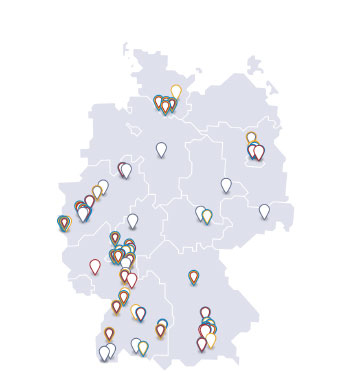Medical Biotechnology in Germany 2019
Biopharmaceuticals: Economic data and benefit for patients with autoimmune diseases
The new biotech report describing the situation of medical biotechnology in Germany is now available. It was provided by Boston Consulting Group for vfa bio. This yearly report is the only one recording all activities within medical biotechnology in Germany – ranging from startup to big companies. In addition to key economic data on medical biotechnology in Germany in 2018, the focus of this year’s report is on the benefit of biopharmaceuticals for patients with autoimmune diseases.

Key economic data on medical biotechnology in Germany in 2018 at a glance:
- Sales of biopharmaceuticals (in the pharmacy and hospital market) increased by 11.7% relative to 2017, to €11.4 billion. The share of this revenue as a percentage of the total pharmaceuticals market rose from 26% to 27.4%. Nearly all fields of application saw growth, while immunology had the most revenues.
- Biosimilars showed very strong growth following their market launch in Germany and already achieved significant market shares of 25-50% in their first year. On average, they made up 38% of revenues in 2018.
- 38 new biopharmaceutical drugs were approved in 2018 (58% of all new approvals), more than ever before. This underlines the increasing significance of biopharmaceuticals in medical care.
- Due to the large number of new approvals, the number of biopharmaceutical compounds in clinical development from companies operating in Germany fell slightly over the year, from 639 to 635—but the pipeline is still very well filled. At the end of 2018, biosimilars made up around 20% of the phase III biopharmaceutical pipeline.
- In 2018, there were 400 medical biotechnology companies in Germany. 119 of them are already marketing biopharmaceuticals and/or have their own product pipelines; the remaining 281 contribute to drug development in other ways, such as with technology platforms, without developing their own active ingredients.
- Medical biotechnology companies have continued to hire new staff, whose numbers increased significantly to 49,700, or 5.7%—another new record.
The focus topic of the Biotech-Report 2019 is the benefit of biopharmaceuticals for patients with autoimmune diseases.
You can order or download the BCG report in german language here: www.vfa.de/publikationen

Autoimmune diseases are caused by an overreaction of the immune system to the body's own cells or tissues. There are an estimated 80 to 100 different autoimmune diseases, affecting at least 5 to 8% of the world's population.
After cardiovascular diseases and tumors, they are the third most frequent disease group in industrial countries. Besides common autoimmune diseases such as rheumatoid arthritis, psoriasis, and multiple sclerosis, there are also rare autoimmune diseases such as acquired thrombotic thrombocytopenic purpura and periodic fever syndromes.
Around 30 biopharmaceuticals are approved for the treatment of autoimmune diseases. Here, Germany is an important research and development location: In 2018, 97 clinical studies on autoimmune diseases were initiated by the industry. This corresponds to a 20% share and ranks second—directly after cancer studies.
Aside from drugs, devices (application aids) and patient support programs also play a significant role, especially in chronic diseases:
They improve patients' adherence to therapies and thus contribute to better clinical results, which can also benefit society as a whole by reducing follow-up costs.
To keep successfully developing and producing new biopharmaceuticals in Germany and making them available to patients, the industry needs stable and favorable frame conditions. This includes, in particular, making Germany a good place for business, mobilizing innovation capital, and utilizing opportunities for better health. If these points are taken into account, and all players in the health care system pull together to implement them, the innovation cycle can be sustained—to the benefit of patients, society, and Germany as a business location.



